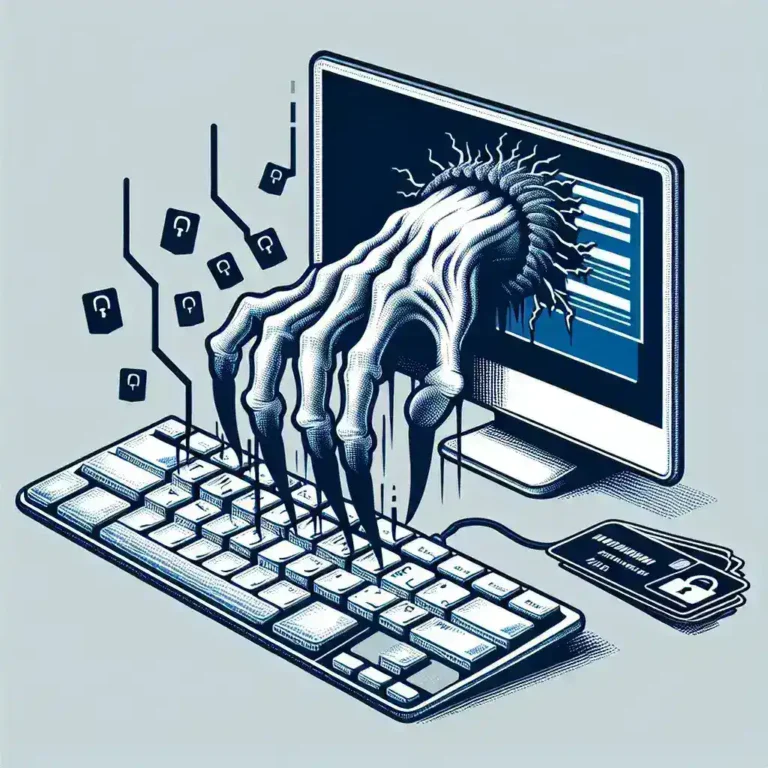
What is the Role of Ethical Hacking in Safeguarding Intellectual Property?
Introduction
In today’s digital age, the protection of intellectual property (IP) is paramount for businesses and creators alike. As technology evolves, so do the methods employed by malicious actors to exploit and steal valuable intellectual assets. This is where ethical hacking emerges as a vital component in safeguarding IP. Ethical hacking involves authorized attempts to penetrate systems and identify vulnerabilities before malicious hackers can exploit them. This article delves into the role of ethical hacking in protecting intellectual property, highlighting its importance, methodologies, and benefits.
Understanding Intellectual Property
Intellectual property refers to creations of the mind, such as inventions, literary and artistic works, designs, symbols, names, and images used in commerce. IP is protected by law through patents, copyrights, trademarks, and trade secrets, granting creators exclusive rights to their creations. Protecting IP is essential for fostering innovation, maintaining competitive advantage, and ensuring the economic value of creative endeavors.
The Importance of Protecting Intellectual Property
Protecting intellectual property is crucial for several reasons:
- Encourages Innovation: Creators and businesses are more likely to invest in research and development when they are assured that their creations are protected.
- Maintains Competitive Edge: Protecting IP ensures that competitors cannot easily replicate or steal unique products, services, or branding elements.
- Prevents Financial Loss: IP theft can lead to significant financial losses, damage to reputation, and loss of customer trust.
- Legal Protection: Effective IP protection provides legal recourse against unauthorized use or infringement.
What is Ethical Hacking?
Ethical hacking, also known as white-hat hacking, involves authorized individuals probing computer systems, networks, and applications to identify and fix security vulnerabilities. Unlike malicious hackers, ethical hackers operate with permission and adhere to legal and ethical standards. Their goal is to enhance system security and protect sensitive information from unauthorized access and breaches.
How Ethical Hacking Safeguards Intellectual Property
Ethical hacking plays a pivotal role in safeguarding intellectual property through various mechanisms:
Identifying Vulnerabilities
Ethical hackers perform comprehensive assessments to uncover security weaknesses in systems that could be exploited to access or steal IP. By identifying these vulnerabilities, organizations can implement necessary safeguards to protect their intellectual assets.
Preventing Data Breaches
Data breaches can result in the loss or theft of valuable IP. Ethical hackers simulate cyberattacks to test the robustness of security measures, ensuring that systems are resilient against potential breaches that could compromise intellectual property.
Enhancing Security Protocols
Through their assessments, ethical hackers provide insights and recommendations for strengthening security protocols. This includes improving encryption methods, access controls, and monitoring systems to ensure comprehensive protection of intellectual property.
Ensuring Compliance
Many industries have regulations and standards for data protection and IP security. Ethical hacking helps organizations comply with these requirements by ensuring that their security measures meet or exceed industry benchmarks.
Techniques Used by Ethical Hackers
Ethical hackers employ a variety of techniques to evaluate and enhance the security of systems housing intellectual property:
Penetration Testing
Penetration testing involves simulating cyberattacks to assess the security of systems. Ethical hackers attempt to exploit vulnerabilities to determine the effectiveness of existing security measures and identify areas for improvement.
Vulnerability Assessments
Vulnerability assessments involve scanning systems for known weaknesses and misconfigurations. This proactive approach helps in identifying and addressing potential threats before they can be exploited.
Security Audits
Security audits entail a thorough review of an organization’s security policies, procedures, and infrastructure. Ethical hackers evaluate the effectiveness of these elements in protecting intellectual property and provide recommendations for enhancements.
Social Engineering
Social engineering involves testing the human element of security by attempting to deceive individuals into divulging sensitive information. This helps in identifying weaknesses in employee awareness and training programs related to IP protection.
Benefits of Ethical Hacking for IP Protection
Implementing ethical hacking practices offers numerous benefits for safeguarding intellectual property:
- Proactive Security: Ethical hacking allows organizations to identify and mitigate security threats before they result in IP theft or breaches.
- Cost Savings: Preventing data breaches and IP theft can save organizations from substantial financial losses associated with remediation, legal fees, and reputational damage.
- Enhanced Trust: Demonstrating a commitment to security through ethical hacking builds trust with clients, partners, and stakeholders by ensuring that their intellectual assets are protected.
- Continuous Improvement: Regular ethical hacking assessments foster a culture of continuous security improvement, adapting to evolving threats and technological advancements.
Challenges and Considerations
While ethical hacking is invaluable for IP protection, there are challenges and considerations to address:
Finding Qualified Ethical Hackers
Identifying skilled and trustworthy ethical hackers can be challenging. Organizations need to ensure that ethical hackers possess the necessary expertise and adhere to ethical standards.
Cost Implications
Implementing ethical hacking services can involve significant costs. However, these should be weighed against the potential financial losses from IP theft and breaches.
Maintaining Privacy
Ethical hacking activities must be carefully managed to protect the privacy of data and ensure that testing does not inadvertently expose sensitive information.
Integration with Existing Security Measures
Ethical hacking should complement, not replace, existing security measures. Organizations must integrate ethical hacking findings with their broader security strategies effectively.
Conclusion
Ethical hacking serves as a crucial defense mechanism in the protection of intellectual property. By proactively identifying vulnerabilities, preventing data breaches, and enhancing security protocols, ethical hackers play an integral role in safeguarding the valuable intellectual assets that drive innovation and competitive advantage. As cyber threats continue to evolve, the importance of ethical hacking in IP protection becomes increasingly significant, ensuring that creators and businesses can thrive in a secure digital landscape.




Leave a Comment